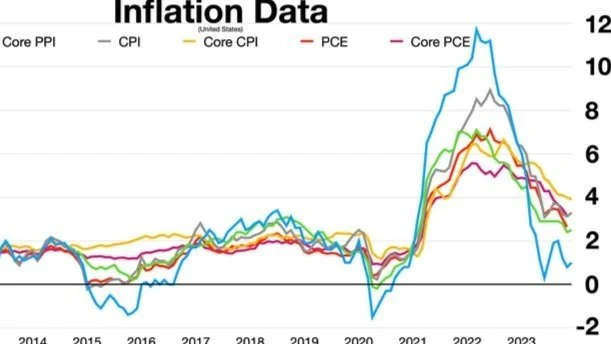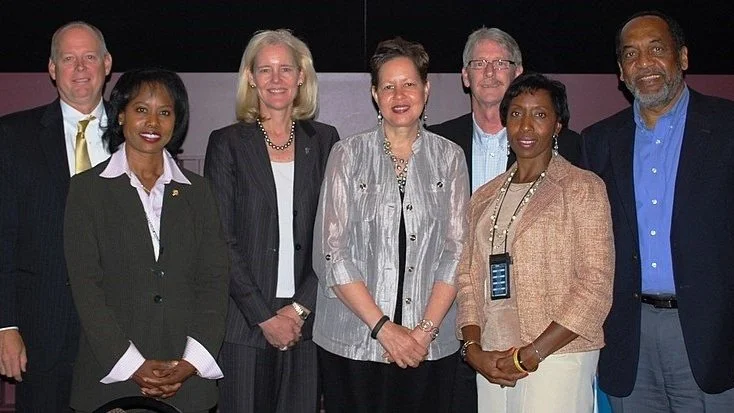Brookings pastor Carl Kline: Is God a he? Why a male definition of the supreme being distorts attitudes on earth
When I was in campus ministry at SDSU, we had what we called “Soup and Service.”
Every Sunday a few of our students would arrive at the kitchen to prepare an evening meal of soup and bread for our gathered community. We would then have a meal together in the lounge of our campus ministry center, then move to the chapel for a student-led service. There was a chapel committee that determined who would lead the service and when, what the theme might be, and who would do music, etc.
One meeting the issue of gender language came up. One of the young women wanted to know why God was always a “He” (as famously depicted above in Michelangelo’s painting on the ceiling of the Sistine Chapel). For her, God was inclusive, without a gender distinction, and we ought to be expressing that in our worship. Most of the other committee members agreed.
There were two males who objected. They believed the Bible used “He,” and we shouldn’t be messing around with Biblical language. Nevertheless, they eventually relented to the will of the majority and agreed to a three-month trial.
We would use “She” for God in our worship. Each session would include a reading of the passage in Matthew 23:37 or Psalm 91 where God is a mother hen sheltering her brood under her wings. Or the reading might come from Isaiah where God is a birth-giver or comforting mother; or from Hosea where God nurses; or even from Hosea 13:8, where God is a ferocious mother bear.
We proceeded with the experiment. The three months went by quickly. When it was concluded, one of the young men who had objected confided to me that he had come to appreciate the inclusive language. It made him think. He realized it was his mother who waited up for him till one o’clock in the morning to see him safely at home.
The three-month trial had opened him up to a much fuller understanding of the nature of God. I fear that 40 years later, that experiment needs to happen again and again, especially in the more conservative evangelical community. With their male God, the emphasis continues to be on sin and salvation, on discipline and punishment, with very little room for sympathy and forgiveness; for mothering.
These Christians always seem to focus on the second chapter of Genesis instead of the first. So Eve comes from the rib of Adam. Adam, the male, is created first. Eve is an afterthought, only created to be Adam’s helper. They ignore the other story in the first chapter of Genesis, where male and female are created together.
I believe parenting has changed somewhat since my childhood. Parental gender roles are not quite as pronounced. But I was recalling the other day how as a child, I was riding my tricycle really fast to show off for my older sister’s girlfriends, when I crashed and skinned up my face, arms and leg.
I went crying to my mother for comfort and sympathy. My father was best known for his discipline and spankings.
Without the help of feminist theologians and resources like “The Women’s Bible Commentary,” I fear I would have continued to understand God simply like my human father.
Religious understandings intrude upon our political life. We can see it most clearly in the approaching presidential election. The myth of the dominant male, created in the image of God, keeps many enthralled as they consider their options.
Many observed the weakness in the older, seemingly more fragile candidate, in the recent presidential debate. The more dominant and forceful candidate seemed to gain ground and stature among some, as he seemed more manly and in control.
Men don’t give birth. Women do! It’s not an easy process. There are months of new, and sometimes difficult, preparations for birth. Birthing is not easy!
The after-effects can linger. In the same way, new life in our society and the political processes that move it are difficult. But increasingly we need to include the feminine dimension in our public life. Constantly looking to warriors to lead us into one battle or another is not about the creation of “new” life. It’s a salute to the angry God of the Hebrew Scriptures, not the “God of Love” portrayed in the New Testament.
Even the non-religious are impacted by the way religious conceptions are integrated into social and political systems. A male God, creating and manipulating the workings of the world, is the model for human men, determining the policies and structures of our human societies, and making sure women remain helpmates, like Eve.
Male rulers weaponize Ukraine and Israel and prepare for death and destruction worldwide. And some treat women as objects, assaulting them in changing rooms, cheating on wives with porn stars and grabbing women in their privates whenever they want.
There is a Chinese symbol, often associated with Taoism, known as Yin-yang. There are two distinct colors that flow into each other. And even in the white there is a dot of black, and in the black a dot of white. For me, it is a symbol for the first chapter of Genesis, where men and women are created together, equal, and with some of the feminine in the masculine; and some of the masculine in the feminine.
Would that we could find more leaders who would give birth to new and more promising life, be “birthers” willing to work for the growth and development of that new life, with love and dedication.
Carl Kline of Brookings is a United Church of Christ clergyman and adjunct faculty member at the Mt. Marty College campus in Watertown. He is a founder and on the planning committee of the Brookings Interfaith Council, co-founder of Nonviolent Alternatives, a small not-for-profit that, for 15 years, provided intercultural experiences with Lakota/Dakota people in the Northern Plains and brought conflict resolution and peer mediation programs to schools around the region. He was one of the early participants in the development of Peace Brigades International. Kline can be reached at carl@satyagrahainstitute.org. This column originally appeared in the Brookings Register.







